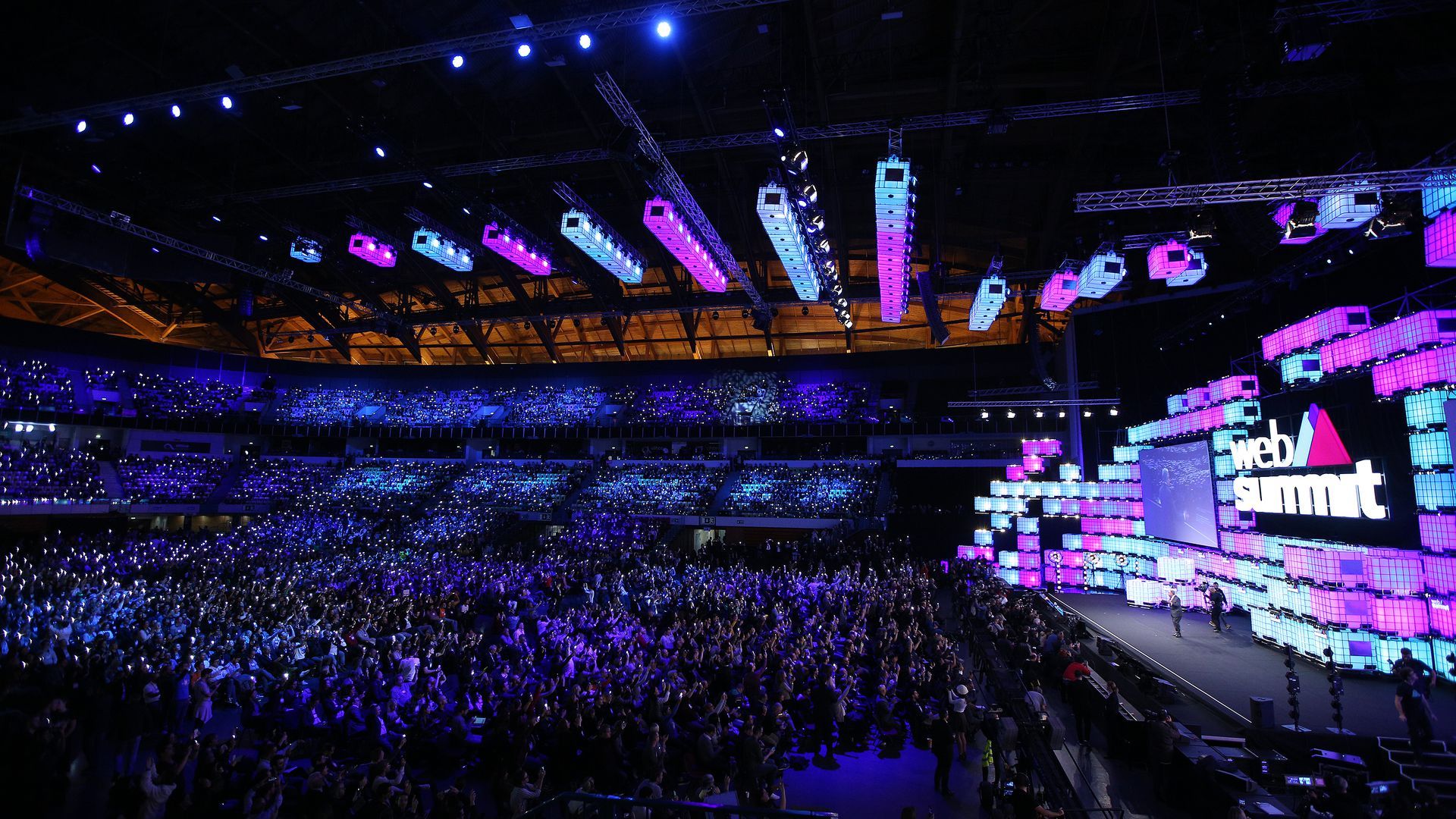The rockstar allure of private money
Add Axios as your preferred source to
see more of our stories on Google.

A tech conference. Photo: Pedro Fiúza/NurPhoto via Getty Images
LISBON — The public stock market is doing pretty well, on the face of things. The S&P 500 is at record highs, European stocks are surging, and a slew of multibillion-dollar companies have IPO'ed this year, raising billions of dollars in fresh capital. But private markets still seem to be much more alluring.
What we’re seeing: I'm in Lisbon this week, attending the Web Summit for the first time. The clear message being sent: Private markets are more attractive than ever.
- In some ways, Web Summit is much like any other geeky finance conference: Yesterday I interviewed a panel of VCs on the subject of "Where I am putting my money this year," while this morning I moderated a panel on "fintech disruption."
- The big difference: These discussions take place on the stage of the 20,000-capacity Altice Arena, the largest indoor stadium in Portugal. The conference has welcomed 70,469 attendees in total, nearly all of whom are either actively investing in private companies, or hoping to raise money from people who do.
- The Web Summit crowd is just a tiny subset of overall private investing, which can include everything from infrastructure to buyouts to timberland.
By the numbers: Venture capitalists have a record $118 billion of cash on hand, ready to invest in private companies, per PitchBook. That's up 20% from 2018. (Still, to put that number in perspective, it's roughly the amount of cash that's just sitting on Apple's balance sheet alone.)
- As the amount invested grows, so does the transparency and liquidity of the market as a whole.
What we’re hearing: One pension plan administrator gleefully told me that the IPO market is now dead and they hope to see companies remain private in perpetuity. Meanwhile, a big-name U.S. venture capitalist said that 75% of their liquidity over the past 12 months had come from selling private stakes to other investors on the secondary market.
- In other words, private investors are happy to actively trade corporate stakes among one another, providing liquidity to early investors without the need for an IPO. Even employees are quietly being allowed to cash out, using services like Nasdaq Private Market.
- Early-stage investors sell to later-stage investors who sell to strategic investors. Last month, for instance, SoftBank spent $1.3 billion just in buying up VCs' stakes in the Indian hotel company Oyo. And roughly 20% of VC exits now happen when companies get sold to private equity funds.
The other side: Public markets aren't serving early private investors particularly well. Uber, for instance, fetched $45 per share when it went public in May— but private investors have only been allowed to start selling their shares since yesterday.
- The so-called "lockup expiration" has sent Uber's stock not only below its IPO price, but even below the $33.32 per share at which Uber raised $1.2 billion in June 2014. As a result, the overwhelming majority of outside Uber investors are now underwater.
The bottom line: The tens of thousands of people at Web Summit, not to mention the even larger private-market ecosystem in the U.S., owe their well-padded livelihoods to private finance.
- The role of conferences like this one: To make the participants feel much more cool and glamorous than their post-IPO counterparts.
Go deeper: Venture capitalists on track for $100 billion in startup investments
